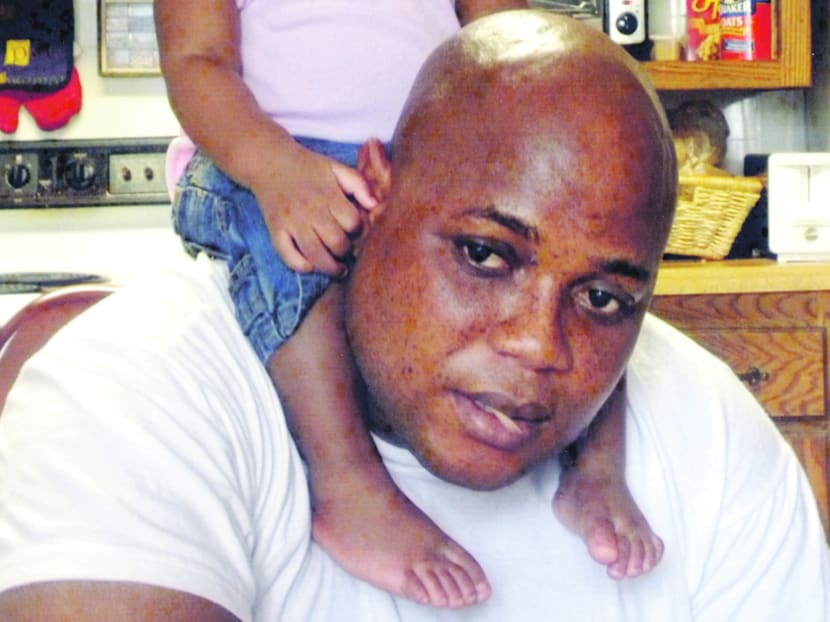Fears grow of Ebola spread outside Africa
LONDON — Fears of the Ebola virus spreading outside Africa have been heightened after a woman in Hong Kong and two men in the United Kingdom showed symptoms of the deadly virus after travelling to the continent.

Patrick Sawyer with his daughter Ava. Sawyer died from Ebola after travelling from his native Liberia to Nigeria. Photo: AP
LONDON — Fears of the Ebola virus spreading outside Africa have been heightened after a woman in Hong Kong and two men in the United Kingdom showed symptoms of the deadly virus after travelling to the continent.
While reports say the trio have tested negative for the virus, the British Foreign Secretary — who yesterday prepared to chair an emergency meeting on how to tighten Britain’s defences against Ebola — said the spread of the disease was a very serious threat to the UK.
In Hong Kong, a 39-year-old woman who caught a fever while returning from a holiday to Kenya on Monday has tested negative for the virus, the South China Morning Post reported yesterday. A source at the Queen Elizabeth Hospital in the city, where the woman has been kept in isolation since Tuesday, told the paper the woman is in a stable condition. No other cases have been reported, said the city’s Health Secretary Ko Wing-man, although he warned the city to be on alert for imported cases.
The city’s Hospital Authority yesterday held an emergency meeting to look into a contingency plan should the city see an outbreak, the paper reported. Two suspected cases also caused jitters in the UK after a man had been tested for Ebola in Birmingham and another visited a UK hospital over fears that he was showing symptoms of the deadly virus.
Both were later given the all-clear by doctors, said a report by The Sun newspaper.
Britain’s Department for Health yesterday confirmed the cases. A spokesman added: “We’re well prepared to identify and deal with any potential cases, though there has never been a case in this country.”
Foreign Secretary Phillip Hammond said no other British citizens were believed to be affected. Mr Hammond chaired an emergency meeting on the virus with officials yesterday.
He added that Prime Minister David Cameron regarded the threat as “serious” and would discuss which measures need to be taken to protect British people from the virus either in the UK or in diplomatic posts abroad.
The latest outbreak of the virus is the largest in its history. Ebola is believed to have killed 672 people in Guinea, Liberia and Sierra Leone since February, said the World Health Organization (WHO). The Ebola virus is transmitted from wild animals including chimpanzees, gorillas and bats, the WHO said.
The contagious disease, which has no known cure, has symptoms that include vomiting, diarrhoea and internal and external bleeding. The fatality rate of the current outbreak is around 60 per cent, although Ebola can kill up to 90 per cent of those who catch it.
Experts say the risk of travellers contracting Ebola is considered low because it requires direct contact with bodily fluids or secretions such as urine, blood, sweat or saliva.
Ebola cannot be spread like flu through casual contact or breathing in the same air.
Still, the early symptoms of Ebola — fever, aches and sore throat — mirror those of many other diseases including malaria and typhoid, experts say. Only in later stages of Ebola do patients sometimes experience severe internal bleeding and blood coming out of their mouth, eyes or ears.
On Tuesday, the doctor leading Sierra Leone’s fight against Ebola died from the virus. The death of Sheik Umar Khan, who was credited with treating more than 100 patients, follows those of dozens of local health workers and the infection of two American medics in neighbouring Liberia, highlighting the dangers faced by staff trying to halt the disease’s spread across West Africa.
While the WHO has stopped short of recommending travel restrictions, the Togolese airline ASKY has suspended flights to and from Sierra Leone and Liberia as concern over the spread of the virus has increased since the first death was reported last week in Nigeria’s coastal city of Lagos, home to 21 million people.
The dead man was Patrick Sawyer, a consultant for Liberia’s Finance Ministry in his 40s who took an ASKY Airlines flight from Liberia to Ghana, then on to Togo and eventually to Nigeria where he was immediately taken into quarantine until his death.
Meanwhile, Liberian and Nigerian airports and seaports have begun screening international arrivals for Ebola symptoms, although these can take up to 21 days to appear. AGENCIES






